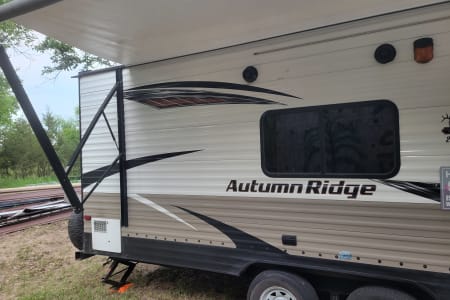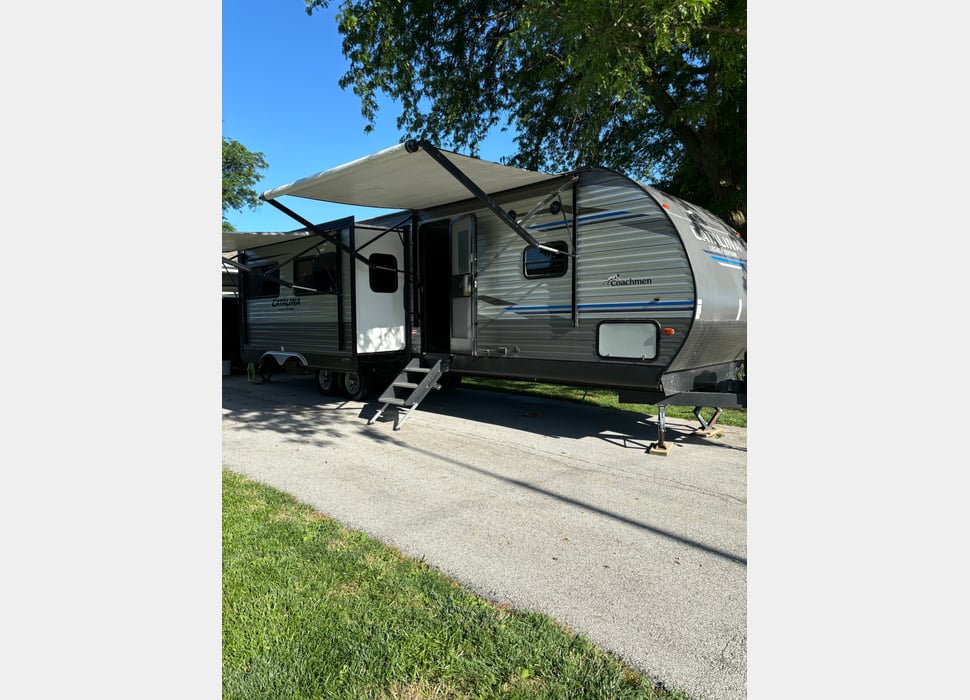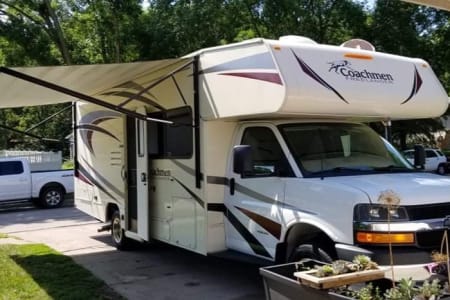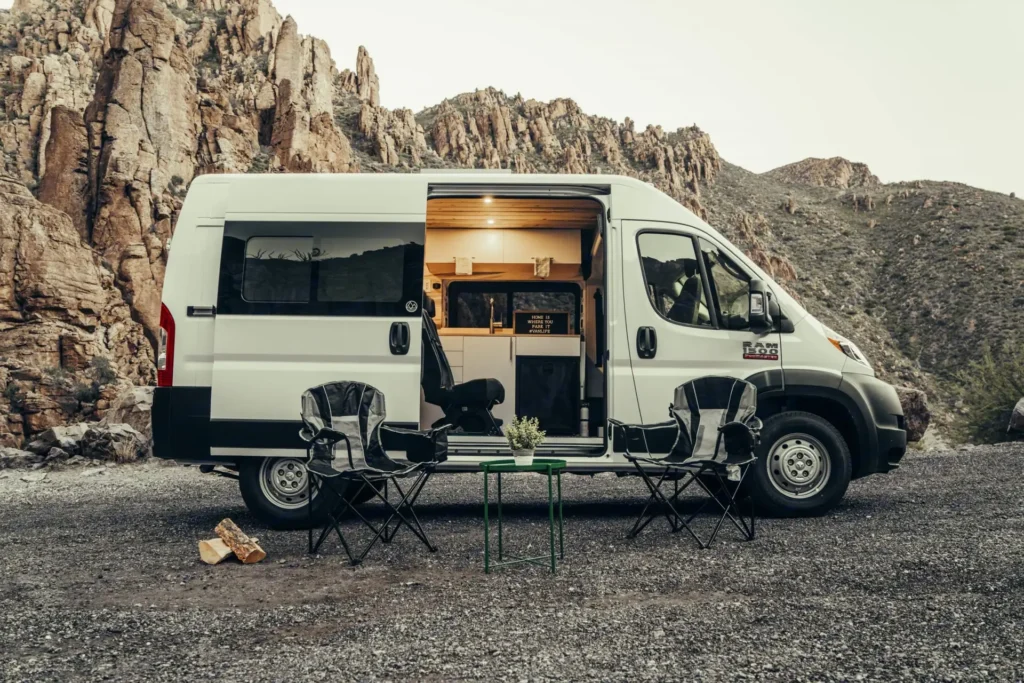
Introduction
Hey there, fellow wanderers! Have you ever dreamed of hitting the open road, embracing the great outdoors, and exploring the beauty of nature without sacrificing comfort? Look no further than RV rentals! Renting an RV is the perfect way to create unforgettable memories with friends and family while enjoying the freedom of the road. So buckle up, and let’s dive into the exciting world of RV rentals!
Planning your RV journey? Don't forget to check out our RV Rental Calculator to estimate your travel costs and make budgeting easier.
Types of RVs
When it comes to RV rentals, you’ve got a plethora of options to choose from, each with its unique charm and features. Here are the main types:
1. Class A Motorhomes: These are the kings of the road! They’re built on a heavy-duty frame, offering luxurious amenities like full bathrooms, kitchens, and multiple sleeping areas. Perfect for large families or those who want a home-away-from-home experience.
2. Class B Motorhomes (Camper Vans): These compact and nimble RVs are ideal for couples or small families. They offer basic amenities, such as a small kitchen, bathroom, and sleeping area, making them perfect for short trips or city exploration.
3. Class C Motorhomes: A happy medium between Class A and B, these RVs feature a distinctive overhead bunk above the cab. They offer more space than camper vans and are easier to maneuver than Class A motorhomes.
4. Travel Trailers: These towable RVs come in various sizes, from small teardrop trailers to massive toy haulers. They require a suitable tow vehicle and offer the advantage of being detachable, so you can leave your trailer at the campsite and explore the area in your tow vehicle.
5. Fifth-Wheel Trailers: Larger than traditional travel trailers, fifth-wheels require a special hitch in the bed of a pickup truck. They offer more space and stability, making them a popular choice for full-time RVers.
Planning your RV journey? Don't forget to check out our RV Rental Calculator to estimate your travel costs and make budgeting easier.
Benefits of Renting an RV
Renting an RV is the ultimate way to travel, offering numerous advantages:
1. Freedom and Flexibility: With an RV, you’re your own tour guide. You can change your itinerary on a whim, explore off-the-beaten-path destinations, and enjoy the journey as much as the destination.
2. Comfort and Convenience: No more packing and unpacking at each stop. RVs offer all the comforts of home, including a kitchen, bathroom, and sleeping areas. Plus, you can bring along your furry friends without worrying about pet-friendly accommodations!
3. Affordability: RV rentals can be more cost-effective than hotels, especially for larger groups or longer trips. Plus, you’ll save on dining costs by preparing meals in your RV’s kitchen.
4. Quality Time: RV travel fosters a sense of camaraderie and creates lasting memories. Enjoy cozy evenings around the campfire, shared meals, and spontaneous adventures with your loved ones.
How to Rent an Rv
Renting an RV is a breeze! Follow these steps:
1. Choose the Right RV: Decide which type of RV suits your needs and preferences. Consider factors like size, amenities, and fuel efficiency.
2. Find a Reputable Rental Company: Research RV rental companies in your area or at your destination. Read reviews, compare prices, and ensure they offer comprehensive insurance coverage.
3. Book Your RV: Reserve your RV well in advance, especially during peak season. Provide your driver’s license and any other necessary documents.
4. Review the Rental Agreement: Carefully read the rental agreement, paying close attention to the cancellation policy, mileage limits, and any additional fees.
5. Inspect the RV: Before embarking on your adventure, inspect the RV for any damage and ensure all systems are functioning properly. Document any existing issues to avoid disputes upon return.
6. Attend a Walkthrough: The rental company will provide a walkthrough, demonstrating how to operate the RV’s systems, such as the generator, water, and waste tanks.
7. Hit the Road: With your RV rental squared away, it’s time to set off on your epic adventure!
Cost of RV Rentals
The average cost of RV rentals varies depending on factors like the type of RV, rental duration, location, and time of year. Expect to pay anywhere from $75 to $350 per night for a Class C motorhome, while luxury Class A motorhomes can cost upwards of $600 per night. Additional costs may include mileage fees, generator usage, and cleaning fees. Booking during off-peak seasons and taking advantage of discounts can help you save money.
Renting an RV vs. Staying in a Hotel
When comparing RV rentals to hotels, consider the following:
1. Cost: While the nightly rate for an RV may be higher, the overall cost can be lower than hotels, especially for larger groups or longer trips. Plus, you’ll save on dining expenses by cooking in your RV.
2. Flexibility: RVs offer unparalleled freedom to explore and change your itinerary on a whim. Hotels, on the other hand, require advance bookings and restrict your mobility.
3. Comfort: With an RV, you have all the comforts of home, including a kitchen, bathroom, and sleeping areas. Hotels may offer luxurious amenities, but you’re confined to a single room.
4. Experience: RV travel provides a unique, immersive experience that allows you to connect with nature and create lasting memories with loved ones. Hotels offer a more conventional, structured vacation.
Rental Insurance
Rental insurance is crucial when renting an RV. Most reputable rental companies offer liability insurance and optional damage waivers. Liability insurance covers damages or injuries you may cause to others, while damage waivers reduce or eliminate your responsibility for accidental damages to the RV. Be sure to understand your coverage and consider purchasing additional protection if needed.
Choosing an RV Rental Company
When selecting an RV rental company, consider the following:
1. Reputation: Read reviews and testimonials to gauge the company’s reliability and customer service.
2. Selection: Choose a company with a diverse fleet of well-maintained RVs to ensure you find the perfect fit for your needs.
3. Insurance: Verify that the company offers comprehensive liability insurance and damage waivers to protect you during your rental period.
4. Support: Opt for a company that provides 24/7 roadside assistance and technical support for peace of mind during your travels.
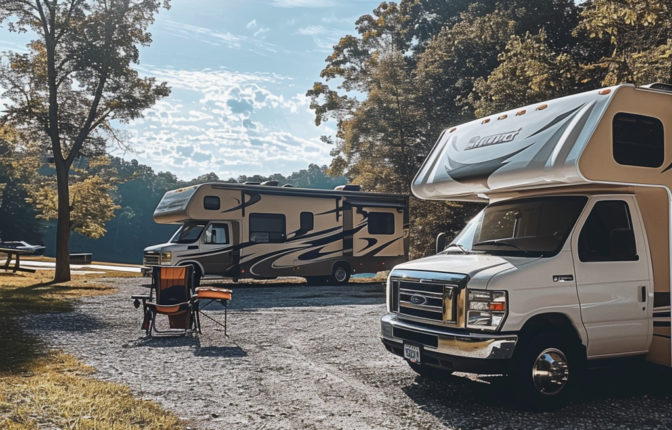
Tips for Saving Money on RV Rentals
To save money on RV rentals, try these tips:
1. Book in Advance: Secure your RV rental early to lock in lower rates and ensure availability, especially during peak season.
2. Travel Off-Peak: Rental rates are typically lower during the shoulder and off-peak seasons. Take advantage of these discounts and enjoy less crowded campsites.
3. Choose a Smaller RV: Smaller RVs are more affordable and fuel-efficient, making them an excellent choice for budget-conscious travelers.
4. Skip the Extras: Opt for a basic RV package and bring your own bedding, cookware, and other essentials to save on rental costs.
Common RV Rental Features
Modern RVs come equipped with various features to enhance your travel experience:
1. Kitchens: Most RVs have fully functional kitchens, complete with a refrigerator, stove, microwave, and sink.
2. Bathrooms: RV bathrooms typically include a shower, toilet, and sink, allowing you to maintain your personal hygiene on the road.
3. Sleeping Areas: RVs offer multiple sleeping options, such as convertible dinettes, sofa beds, and private bedrooms.
4. Entertainment Systems: Many RVs feature TVs, DVD players, and sound systems to keep you entertained during downtime.
5. Outdoor Amenities: Enjoy the great outdoors with features like awnings, exterior speakers, and outdoor kitchens.
Ground Rules and Responsibilities
When renting an RV, be aware of the following ground rules and responsibilities:
1. Follow the Rental Agreement: Adhere to the terms and conditions outlined in your rental agreement, including mileage limits, generator usage, and cleaning requirements.
2. Drive Safely: Familiarize yourself with the RV’s dimensions and practice safe driving habits, such as maintaining a safe distance from other vehicles and taking wide turns.
3. Respect Campsites: Follow campsite rules and etiquette, including observing quiet hours, disposing of waste properly, and respecting other campers‘ space.
4. Maintain the RV: Keep the RV clean and well-maintained during your rental period, and report any issues or damages promptly to the rental company.
Why Renting an RV is the Best Way to Travel in the USA
Renting an RV is the ultimate way to explore the diverse landscapes and attractions of the USA:
1. Flexibility: With an RV, you can create a custom itinerary that caters to your interests and travel preferences.
2. Natural Wonders: The USA is home to numerous national parks, forests, and monuments. RV travel allows you to immerse yourself in these breathtaking natural wonders.
3. Cultural Experiences: From small towns to bustling cities, RV travel enables you to discover the rich tapestry of American culture.
4. Affordability: RV rentals can be a cost-effective way to travel, especially for families or larger groups. Plus, you’ll save on dining expenses by cooking in your RV.
Plan Your Road Trip Now...
Plan Your Road Trip Now...
Returning the RV
When your rental period comes to an end, follow these steps for returning the RV:
1. Clean the RV: Thoroughly clean the interior and exterior of the RV, including the kitchen, bathroom, and living areas.
2. Empty the Tanks: Dump the waste and freshwater tanks at a designated dump station before returning the RV.
3. Refill the Fuel: Top off the fuel tank and return the RV with the same fuel level as when you picked it up.
4. Inspect the RV: Conduct a final inspection of the RV and document any new damages or issues.
5. Return the RV: Return the RV to the rental company on time and complete any necessary paperwork.
What to Check and Ask Before Renting an RV
Before renting an RV, ask these questions and perform these checks:
1. Insurance Coverage: Verify the rental company’s insurance policy and consider purchasing additional coverage if needed.
2. Rental Agreement: Review the rental agreement carefully, paying close attention to fees, mileage limits, and cancellation policies.
3. RV Condition: Inspect the RV for any damages, both inside and out, and document them before embarking on your trip.
4. System Functionality: Test the RV’s systems, including the generator, water, and waste tanks, to ensure they’re working properly.
5. Roadside Assistance: Confirm that the rental company offers 24/7 roadside assistance for peace of mind during your travels.
Driving and Safety Tips
To ensure a safe and enjoyable RV experience, follow these tips:
1. Practice Driving: Before hitting the road, practice driving the RV in a large, open space to familiarize yourself with its size and handling.
2. Take Your Time: RVs are larger and slower than cars, so allow extra time for maneuvering, merging, and passing other vehicles.
3. Secure Loads: Properly secure all cargo and belongings to prevent them from shifting during transit.
4. Follow RV-Specific Laws: Adhere to RV-specific laws, such as speed limits, weight restrictions, and parking regulations.
5. Take Breaks: Schedule regular breaks to stretch, rest, and recharge during long drives.
Conclusion
RV rentals offer an unparalleled way to explore the beauty and diversity of the USA while enjoying the comforts of home. By following these tips and guidelines, you’ll be well-equipped to embark on an unforgettable RV adventure, creating lasting memories with friends and family. Happy trails!
Matthew Rogers • May 5, 2024
RV Rentals Near Me
Explore the open road in the perfect RV rental. Or get one delivered and set up for you.



